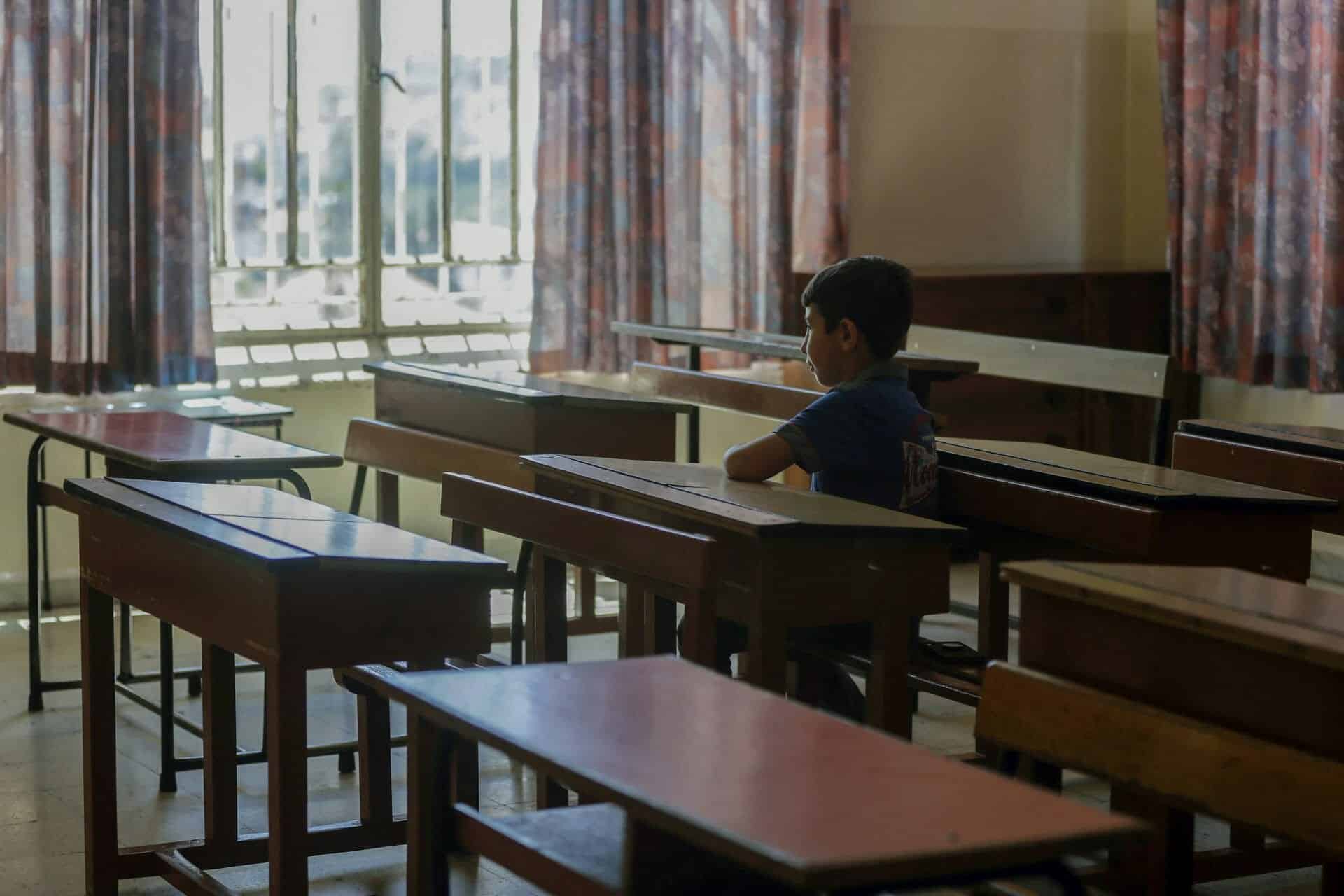Students in Lebanon will return to the classroom starting next month, the education minister said yesterday, amid fears an accelerating economic crisis and the coronavirus pandemic would prevent schools from reopening.
Rights groups have decried an “education catastrophe”, with more than a million children in Lebanon out of school since the country’s Covid-19 outbreak began in February last year. Other students are at risk of never returning, the groups have warned, due to a financial downturn that has seen poverty rates soar to reach 78 percent of the population.
Classrooms will gradually reopen starting September 27, outgoing education minister Tarek Majzoub told a press conference yesterday.
The decision covers both private and public schools as well as technical learning centres. All are to reopen by October 4 at the latest, he added.
Lebanon had moved to distanced learning in March last year due to the pandemic, with intermittent returns to the classroom for some students.
But power cuts, internet outages and the economic crisis have made online instruction a luxury, as families struggle to afford food, yet alone laptops and mobile phone devices.
Schools have threatened to shut because of extortionate operating costs amid rampant inflation. In an attempt to ease their burden, Majzoub said public schools would open to in-person attendance four days a week, with students taking classes online for the fifth day.
Private schools are free to determine their own operating schedule, he added.
The ministry “is coordinating with relevant authorities and donor countries to settle outstanding financial and economic issues,” Majzoub said, decrying “a series of crises” plaguing the education sector. Lebanon’s economic crisis, branded by the World Bank as likely one of the planet’s worst in modern times, has seen the local currency lose 90 percent of its value on the black market.
The crisis has led to shortages of almost everything, from fuel to electricity and even bread, with power cuts lasting up to 22 hours a day and fuel for private generators increasingly scarce.
Majzoub said that with international assistance, the ministry has provided donations of textbooks and stationery for public school students, as well as solar panels for 122 learning facilities.








